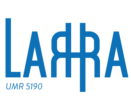CRMba. An extension of CIDOC CRM to support buildings archaeology documentation Root
CRMba. An extension of CIDOC CRM to support buildings archaeology documentation
Description:
What is the CRMba?
The CRMba is an ontology and RDF Schema to encode metadata about the documentation of archaeological buildings (Ronzino 2015, Ronzino et al. 2015). The model was conceived to support the process of recording the evidences and the discontinuities of matter on archaeological buildings, in order to identify the evolution of the structure throughout the centuries and to record the relationships between each of the building components among them and with the building as a whole. It aims at expressing the semantic relations of the stratigraphic units of a standing building, taking into account the stratigraphic analysis theory of the standing buildings (Brogiolo 1988, Parenti 2002, Schuller 2002, Morriss 2004).
The model is built on the same principles of the CIDOC CRM. The model reuses, when appropriate, parts of the CIDOC CRM classes and properties, and refers to other CRM extensions that were developed to ensure the completeness of documentation. In particular, the CRMba model incorporates parts of the CRMgeo, a detailed model of generic spatio-temporal topology and geometric description (Doerr & Hiebel 2013); parts of CRMsci, a model for scientific observation, measurements and processed data in descriptive and empirical sciences (such as biology, geology, geography, cultural heritage conservation, etc.) and CRMarchaeo, a model developed for the documentation of archaeological excavations.
The CRMba is a proposal for approval by CIDOC CRM SIG
What is the idea?
The goal of the CRMba conceptual model is to provide support to:
- understand the building structure and its development;
- recognize the use of a building and how it evolved over the years;
- identify the various phases of the building as a result of construction, transformation, modification and reuse;
- support the investigation and interpretation of the material evidence in the standing structures;
- understand the correlation between parts of a buildings and whole;
- recognize, analyse and interpret the stratigraphy of standing structures and of ruins;
- support the dating process through the identification of the Stratigraphic Relationship (SR) between the various Stratigraphic Units (SU), which can be inferred by the identification of the Stratigraphic Interfaces (SI).
Description
Identification
Start date: 2020-06-19
Base URI: https://ontome.net/ns/crmba/
Project of belonging: CRMba
Root namespace prefix: crmba
This namespace is a root namespace. Find all its versions in the Versions tab.
Labels
| Label | Language | Last updated |
|---|---|---|
| CRMba. An extension of CIDOC CRM to support buildings archaeology documentation * | en | 2020-06-19 |
* : Standard label for this language
Versions
CRMba. An extension of CIDOC CRM to support buildings archaeology documentation is a root namespace.
Published versions
| Namespace | Publication date |
|---|---|
| CRMba version 1.4 | 2026-02-17 |
Classes
| Identifier | Class | Last updated |
|---|
Properties
| Domain | Domain namespace | Identifier | Property | Range | Range namespace | Last updated |
|---|
Relations
Filter by
| Source | Source namespace | Relation | Target | Target namespace | Last updated | Type |
|---|
Notes
| Show | Note | Type | Language | Entity |
|---|
Graph
The webvowl graph cannot be displayed because there is no class or property in this namespace.
List of mismatches with reference namespaces
Entities listed here are not correctly associated with your reference namespaces.
They are displayed in red in your ongoing namespace. They may not be available in the version of the selected space.
Or you may not have selected any version of a reference namespace.
Please make the necessary corrections before proceeding.
| Type of relation | Entity | Namespace | Error type |
|---|




Comments
No comment found.